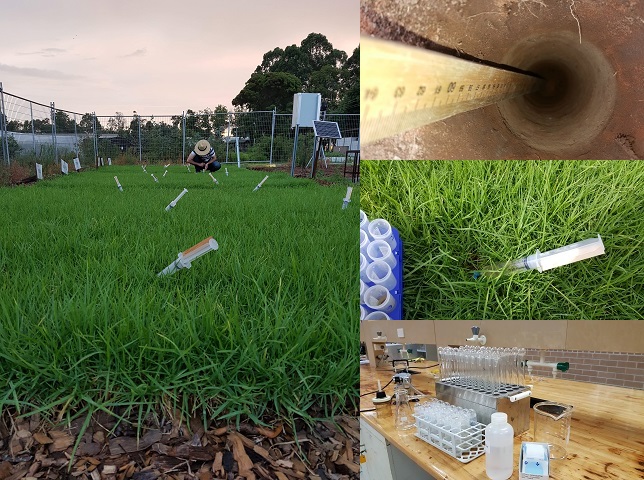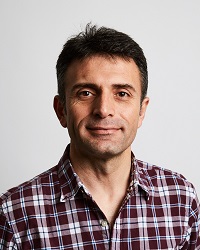Student Project: Recovering Nutrients from Wastewater for use in Sports Fields
Alireza’s research aims at evaluating the effect of different sorts of recycled waters on turf grass production used in sports fields. The availability of nutrients in recycled water makes it as a good source of fertiliser for agricultural purposes. However, good knowledge about nutrient interactions can help to understand the importance of balanced supply of nutrients resulting in improvement in plant growth or yields. Nutrients interactions in crop plants appear to develop when the amount of one nutrient has an effect on the availability and performance of the other one(s).

An outdoor field study took place in an area of nearly 300 m2 at Hawkesbury campus of Western Sydney University. 9 identical plots with 4.3 m2 area was designated and structured. Each plot was equipped with 2 GS3 sensors in 10 cm depth of the soil to measure bulk electrical conductivity, volumetric water content and soil temperature. Soil-water sample extractor also was placed in 10 cm depth of the soil as a facility to regularly check the soil status. Plots have been covered by kikuyu grass which is one the most popular turf grass in Australia. The benefits of successfully use of recycled water for turf grass irrigation include saving water resources, preventing coastal from being contaminated, recovering nutrients, augmentation of river flow, saving in wastewater treatment, groundwater recharge, and sustainability of water resource management.
Mr. Alireza Aghajani Shahrivar
PhD Candidate
Thesis Title: Recovering Nutrients from Wastewater for use in Sports Fields


